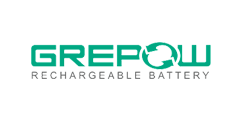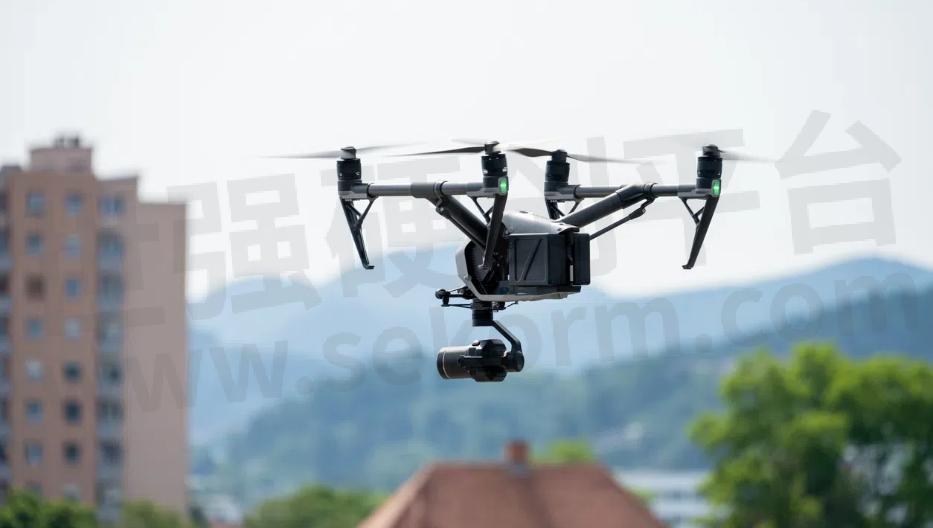Drone Mapping vs. Drone Surveying: What’s the Difference?




Drone technology has revolutionized the way we capture and analyze spatial data, leading to innovations across multiple industries, from construction to agriculture. Among the many applications of drone technology, drone mapping and drone surveying are two closely related yet distinct practices. Both involve capturing aerial imagery and data, but they serve different purposes, utilize different techniques, and offer varying levels of precision. Understanding the differences between drone mapping and drone surveying is crucial for professionals seeking to leverage this technology effectively in their respective fields.
What Is Drone Mapping and How Does it Work?
Drone mapping is a remote sensing technology used to create 2D and 3D maps of an area using data from sensors mounted on a drone or UAV (Unmanned Aerial Vehicle). Its core technology is typically photogrammetry, which involves making measurements from images. During drone mapping, the drone flies autonomous missions, capturing a high overlap of images to generate detailed, life-like maps and models. These maps contain embedded data that enable accurate real-world measurements, making them ideal for applications in land surveying, construction, agriculture, and urban planning.

What Is Drone Surveying and How Does it Work?
A drone survey is an aerial survey conducted using a drone equipped with cameras and sensors to capture high-resolution images and data. These drones often carry RGB, multispectral cameras, or LiDAR sensors to collect vast amounts of information efficiently. Each image is tagged with geo-coordinates from the drone's GNSS sensor, precisely indicating its location in space. For enhanced accuracy, the data is cross-referenced with known ground points using RTK (Real-Time Kinematic) or PPK (Post-Processed Kinematic) systems. This ensures precise alignment between the images and real-world locations.

Drone Mapping vs. Drone Surveying: What's the Difference?
Drone Mapping and Drone Surveying are closely related, but they serve distinct purposes and have different methodologies and outputs. Here's how they compare:
Drone Mapping
● Objective: Drone mapping is primarily focused on creating 2D or 3D maps of an area. These maps can be highly detailed, offering aerial views or topographical data.
● Process: A drone flies over an area, capturing a series of aerial images. Specialized software then stitches these images together to form a continuous map (either 2D orthomosaics or 3D models). The focus is on visual representation rather than precise measurements.
● Output:
2D orthomosaic maps (high-resolution, georeferenced images).
3D models (point clouds, mesh, digital terrain models (DTMs), or digital elevation models (DEMs)).
● Applications:
Agriculture (crop monitoring); Urban planning; Environmental conservation; Construction site monitoring; Marketing purposes (real estate).
Drone Surveying
● Objective: Drone surveying is a more precise and technical use of drones for measurement and data collection. It is used to gather geospatial data for accurate, real-world analysis.
● Process: Similar to drone mapping, drones capture aerial images, but in this case, they also collect georeferenced data using Ground Control Points (GCPs) and, in many cases, advanced sensors such as LiDAR or RTK (Real-Time Kinematic) and PPK (Post Processed Kinematic) systems. This ensures the measurements are extremely accurate.
● Output:
Highly accurate 3D models.
Survey-grade elevation models.
Topographic maps with precise georeferencing.
● Applications:
Land surveying for construction or infrastructure development; Mining operations (volumetric calculations);
Precision civil engineering; Environmental and terrain analysis.
Key Differences
● Accuracy: Drone surveying prioritizes measurement accuracy (with GCPs and RTK/PPK), while drone mapping emphasizes creating detailed maps that may not require survey-grade precision.
● Technology: Surveying often uses advanced sensors like LiDAR for accurate terrain modeling, while mapping relies more on photogrammetry.
● Use Cases: Drone mapping is for general visualization, monitoring, and analysis, while drone surveying is for projects needing precise measurements, like engineering and construction.
● Both methods are essential, but drone surveying offers higher accuracy for projects that require it, whereas drone mapping focuses on creating visually rich and sometimes less precise data.
Conclusion
In summary, while both drone mapping and drone surveying share the common goal of capturing aerial data, they diverge significantly in terms of purpose, accuracy, and application. Drone mapping focuses on creating visual representations of landscapes, making it ideal for general monitoring and analysis. In contrast, drone surveying offers the precision necessary for technical projects like construction, engineering, and land surveying. As a global leading Lipo battery manufacturer, Grepow offers professional standard and customized UAV battery and NMC battery solutions to meet the needs of all kinds of mapping drone and surveying drone applications.
- |
- +1 赞 0
- 收藏
- 评论 0
本文由Ray转载自Grepow Official Website,原文标题为:Drone Mapping vs. Drone Surveying: What’s the Difference?,本站所有转载文章系出于传递更多信息之目的,且明确注明来源,不希望被转载的媒体或个人可与我们联系,我们将立即进行删除处理。
相关研发服务和供应服务
相关推荐
What Is a 6S LiPo Battery?
Lithium Polymer (LiPo) batteries are widely used in drones, RC vehicles, and various other applications due to their lightweight, high energy density, and power delivery. Among these, 6S LiPo batteries are particularly popular. This guide explores their specifications, types, and applications.
What is the Impact of Long Coldness on Agriculture Spraying UAVs Batteries and How to Deal with it
Agricultural drones are not only used for spraying and applying medicine, but also for spreading fertilizer, seeds, and feeds to meet the diversified needs of farmers and improve production efficiency.
How Drone Light Shows are Created and Key Battery Power Requirements
This paper mainly introduces the application of Grepow‘s battery products in Drone Light Shows, and introduces the battery requirements for the application of drone light shows.
LFP磷酸铁锂电池和NMC三元锂电池有什么区别?
LFP电池是指磷酸铁锂电池(Lithium Iron Phosphate Battery)的简称。它是一种新型的锂离子电池,由锂离子电池的一种,具有高能量密度、长寿命、安全性好等特点,被广泛应用于电动汽车、储能系统、电动工具等领域,既然如此,那LFP磷酸铁锂电池和NMC三元锂电池的区别有哪些呢?
How to Custom Your Special-shape Battery?
In this passage, Grepow will look at some applications equipped with the curved lipo battery and a tool that especially helps you design the special-shape battery.
2022 Commercial UAV EXPO | Grepow shows it‘s key products: Tattu Smart Battery, Smart Drone Battery, and TA3000 Charger
At the Commercial UAV EXPO 2022, Grepow will introduce you to the key products: Tattu Smart Battery, Smart Drone Battery, and TA3000 Charger.
Can Lipo Battery Cells Be Shipped by Air?
With the widespread use of electronic products, batteries nowadays have become household items that we can see everywhere. The most commonly encountered type of battery is the lithium-ion battery.
Gens ace Advanced Series begins a new generation of RC smart battery
Gens ace Advanced series batteries are the next generation of RC batteries. The Advanced series design concept is based on being a more convenient, user-friendly, and safety-oriented series of batteries. All Gens Ace Advanced series batteries are equipped with GREPOW factory-made components.
What are the Drone Smart Battery Protocols?
Smart drone batteries, equipped with advanced communication protocols, play a pivotal role in ensuring safety, reliability, and extended flight times. This article delves into the various protocols used in drone smart batteries, examining how they work, their specific use cases, and how they interact with other drone systems to enhance overall functionality.
Tips for maintenance and emergency disposal of agriculture drone battery
In this article, Grepow talks about how the agriculture drone battery is daily maintained, and how to dispose of it when there is an emergency.
Energy Storage Market for UAVs by Product and Geography - Forecast and Analysis 2022-2026
The “Energy Storage Market for Unmanned Aerial Vehicles (UAVs) by Product and Geography - Forecast and Analysis 2022-2026“ report has been added to Technavio‘s offering.
What Batteries are Used for AGVs and AMRs?
With AGVs offering structured, reliable performance and AMRs delivering flexibility and autonomy, these mobile industrial robots are revolutionizing the way materials are handled. The choice of battery plays a crucial role in their performance, and as the industry evolves, we can expect to see further innovations in battery technology that will enhance the capabilities of both AGVs and AMRs. As a global leading lipo battery manufacturer, Grepow offers high-energy-density semi-solid state batteries and lipo batteries that perfectly meet the needs of AGVs and AMRs.
NMC vs NCA Battery Cell: What’s the Difference?
Choosing between NMC and NCA battery cells depends on the specific requirements of the application. NMC cells offer a versatile and cost-effective solution with balanced energy and power characteristics, making them ideal for a wide range of uses from EVs to power tools. On the other hand, NCA cells provide higher energy density and longer cycle life, making them suitable for high-performance EVs, consumer electronics, and aerospace applications.
Prescription vs OTC Hearing Aids: What‘s the Difference?
If you value convenience, long-term savings, and eco-friendliness, rechargeable hearing aids could be the better choice. However, if you prefer a lower upfront cost and the simplicity of changing batteries without worrying about charging, disposable battery models might be more suitable. Both options are available in prescription and OTC hearing aids, so you can make a choice that best suits your lifestyle and hearing needs.
NMC Battery vs. LCO Battery: What’s the Difference?
When it comes to lithium-ion batteries, two of the most commonly discussed chemistries are NMC (Nickel Manganese Cobalt) and LCO (Lithium Cobalt Oxide). Both are widely used in a variety of applications, from electric vehicles to consumer electronics, but they differ significantly in terms of chemical composition, energy density, cycle life, and cost. Understanding the key differences between NMC and LCO batteries is essential for choosing the right battery for specific applications, whether you‘re powering a smartphone or an electric vehicle.
电子商城
服务
可自由定制电池形状,锂离子聚合物/磷酸铁锂成分,放电倍率Max. 50C (持续放电倍率) / 150C (脉冲放电倍率),充电倍率:Max. 5,厚度可达0.5mm。
最小起订量: 5000 提交需求>






































































































































































































登录 | 立即注册
提交评论